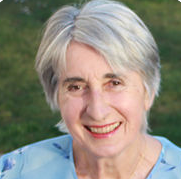Prince Sadruddin Aga Khan: Humanitarian and Visionary (The Book Guild, 2017)
By Diana Miserez
This important biography of His Highness Prince Sadruddin Aga Khan (1933-2003) primarily focuses on the Prince’s some four decades-long work in the United Nations where he served in different capacities for various UN agencies including as High Commissioner for Refugees for UNHCR from 1966-1977. The author, who worked with the Prince at the UN for some years, attends to her subject-matter with clarity and by supplying important historical context to the various periods of the Prince’s career. In so doing, she provides an unprecedented look at the life, work and outlook of a remarkably disciplined, compassionate and benevolent man who some believed had the vision, skills, and values to lead the UN as its Secretary-General. To make her case Miserez marshals a wealth of documents including public and hitherto private correspondence between the Prince and his colleagues and friends, speeches, interviews, and other materials. The book also allows the reader to catch glimpses of the Prince’s personal life. We sense the deep affection he felt for his parents (Aga Khan III and his third wife Princess Andrée (née Carron)), his grandmother (Lady Ali Shah), and other family members. We also learn, albeit cursorily, about his practice of meditation, love of sailing, music, gardens, art and animals.
The book is not meant to be an exposé. Rather, it is a well-crafted and earnest biographical study that makes known in good detail and with primary sources the Prince’s relentless work to alleviate the plight of refugees as well as speak to the conditions that create refugees, his efforts through the Bellerive Foundation (alongside his wife, Princess Catherine) to protect endangered habitats, address deforestation, promote anti-nuclear proliferation, support projects that care for non-human animals (he was among the first to campaign against the fur trade), and preserve world heritage (he was responsible for raising the funds to save the monuments of Abu Simbel in Egypt). His ideas on these matters appear to be far ahead of their time and exceedingly current. Throughout the book we also gain insights into that what motivated the Prince. For example, in a 1984 interview the Prince states that “nothing is more boring than a life of pleasure and leisure ... all of us have to try to define what kind of work we can do that will have an impact.” Elsewhere, the Prince speaks of the “principle of Islamic solidarity and Muslim fraternity, the moral obligation not to lead a selfish life, particularly if one has been favored at birth.” Some of the book’s material also conveys the Prince’s wit and subtle humor. Thus, in an interview with the Swiss journalist and art critic, Étienne Dumont, when asked about the Shahnama manuscript pages (produced in the 1520s) in his personal Islamic art collection (now in the Aga Khan Museum in Toronto), the Prince states that, “I like kitsch. It amuses me. It’s a pleasure to collect things.” And in a personal note to Miserez in 1991, the Prince, remarking on recent meeting of the Red Cross and victims of war, states that, “What do such meetings achieve? I may be getting cynical. Just old age creeping up I guess.” For those of us who think we knew the Prince, Miserez’s biography shows you how little. But one also gets the sense that Miserez could not fully contain in her some 380 pages of text and photographs the full measure of a man whose life’s work and vision were so expansive and urgent.
Born in London just before WWII, Diana Miserez graduated at the University of Bristol where she found herself alongside eastern European refugees. This experience led to work with what is now called the UN Refugee Agency when it was a young organization. Diana met the future UN High Commissioner for Refugees, Prince Sadruddin Aga Khan, on his initial appointment to the agency. She frequently came into contact with him over the course of several periods at the Geneva headquarters and field assignments in Africa and Asia, as he distinguished himself in vital UN work and other fields of great international importance. Diana is the author of several books, including her most recent, Trauma and Uprooting (Troubador Publishing, 2020).

